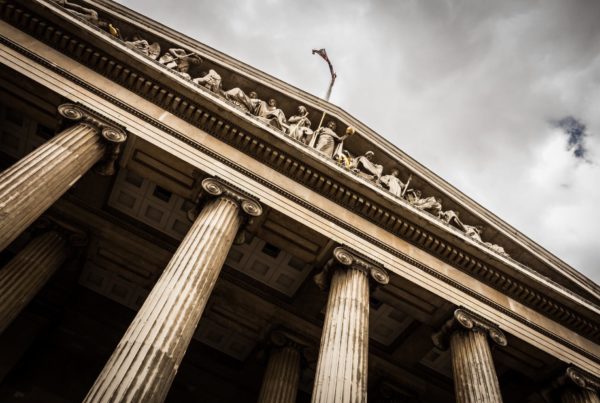Ordinance n°2021-580 of 12 May 2021 transposing Article 2(6) and Articles 17 to 23 of Directive 2019/790 of the European Parliament and of the Council of 17 April 2019 on copyright and related rights in the digital single market and amending Directives 96/9/EC and 2001/29/EC
By ordinance of 12 May 2021, the French government transposed the following articles of Directive (EU) 2019/790, known as the « Copyright Directive »:
- Online content-sharing service provider (art. L 137-1, L 137-2, L 137-3, L 137-4, L 219-2,
L 219-3 and L 219-4 French Intellectual Property Code): The ordinance defines these service providers as the person who provides a service of online communication to the public with the objective of storing and giving access to the public to works and other protected objects uploaded by their users, which the service providers organise and promote with a view to obtaining a profit, whether direct or indirect.
Such providers are now required as a matter of principle to obtain authorisation from the rights holders in respect of the acts of representation and exploitation carried out through the uploading of protected objects on their services. The ordinance provides situations in which the service provider cannot be held liable for acts of exploitation of works or objects protected by a neighbouring right for which it was not able to obtain authorisation. This refers especially to the circumstance where the provider has made its best efforts to obtain the rights holder’s permission or to make unavailable the protected object which had been the subject of a notification by a rights holder. Criteria such as the audience for the service or the cost of such actions are taken into account in determining the provider’s compliance. In addition, providers of content-sharing services have obligations to inform right holders of the measures taken to ensure the enforcement of their rights.
The ordinance sets out less burdensome provisions for services with an annual turnover of less than EUR 10 million in the event that the service has not obtained the authorisation of rightholders for the protected objects accessible on its service. These specific provisions are applicable by way of derogation during the first three years of availability of the service to the public within the European Union.
The ordinance specifies that users of the service may still benefit from the exceptions to the rights concerned, such as the quotation exception. These provisions are applicable from
7 June 2021 to works protected on the date of publication of the order, including those uploaded before that date.
- Proportional remuneration of performers (L 212-3 CPI): The French Intellectual Property Code now stipulates the principle of appropriate remuneration for performers in proportion to the actual or potential economic value of the rights transferred, taking into account their contribution to the work and circumstances such as market practices or the actual exploitation of the performance. Unlike authors (Art. L 122-7 CPI), the ordinance does not provide for the possibility for performers to transfer their rights free of charge or for consideration, whereas the Copyright Directive (Art. 18) provides that authors and performers have the right to receive « appropriate and proportionate » remuneration. On the other hand, as under copyright law, the French Intellectual Property Code provides for exceptions to the principle of proportional remuneration, allowing for lump sum payments. The article provides that collective agreements may determine, taking into account the specificities of each sector, the conditions of implementation of Article L 212-3 CPI.
- Adjustment of remuneration (L 131-5 and L 212-3-2 CPI): A mechanism for adjusting the remuneration due to the author or performer is introduced where their remuneration is unreasonably low in relation to the total income derived from the exploitation by the assignee. The ordinance specifies that the contribution of the author or performer may be taken into account.
- Transparency (L 131-5-1, L 132-18, L 212-3-1 CPI): An obligation of transparency is created by an obligation to render accounts, at least once a year, to any beneficiary of an exploitation contract by which an author or performer has assigned all or part of his rights. Additional information may be requested by authors and performers from sub-licensees if they consider that they do not have sufficient information from the assignee. A professional agreement may be concluded to define the conditions of the transparency obligation. It is also stipulated that the general performance contract concluded with an on-demand audiovisual media service must provide for the transmission of information such as the number of times the works are downloaded. These provisions are applicable since 7 June 2022 and to contracts in force on that date.
- Termination in the absence of exploitation (L 131-5-2 and L 212-3-3 CPI): Authors and performers now have the possibility to terminate the transfer of their rights in the event of a total absence of exploitation of their work or performance. In case of multiple authors or performers, they will have to exercise their right to terminate by mutual agreement. Software authors are excluded from this provision as well as authors and performers who have contributed to an audiovisual work; it should be noted that the French Intellectual Property Code already provides producers’ obligation to exploit the work.
- Musical compositions (L 132-24 CPI): When a contract for the transfer of a musical work to a producer is subject to a foreign law, the contract cannot have the effect of depriving the author, for the exploitation of his work on French territory, of the protective provisions of the French Intellectual Property Code. The ordinance expressly refers to the provisions on the principle of proportional remuneration (L 131-4 CPI), to the adjustment offered to the author (L 131-5 CPI) and to his right to obtain a statement of the revenue from the exploitation of the audiovisual work (L 132-28 CPI).
- Minimum remuneration for streaming (L 212-14 CPI): Finally, the ordinance provides that the implementation of the guarantee of minimum remuneration for performers for streaming broadcasts will be established by agreement between the professional organisations representing performers and phonogram producers and the collecting societies representing performers and phonogram producers. This provision is an exception to the applicable collective bargaining rules due to the presumption of salaried status of performers.





